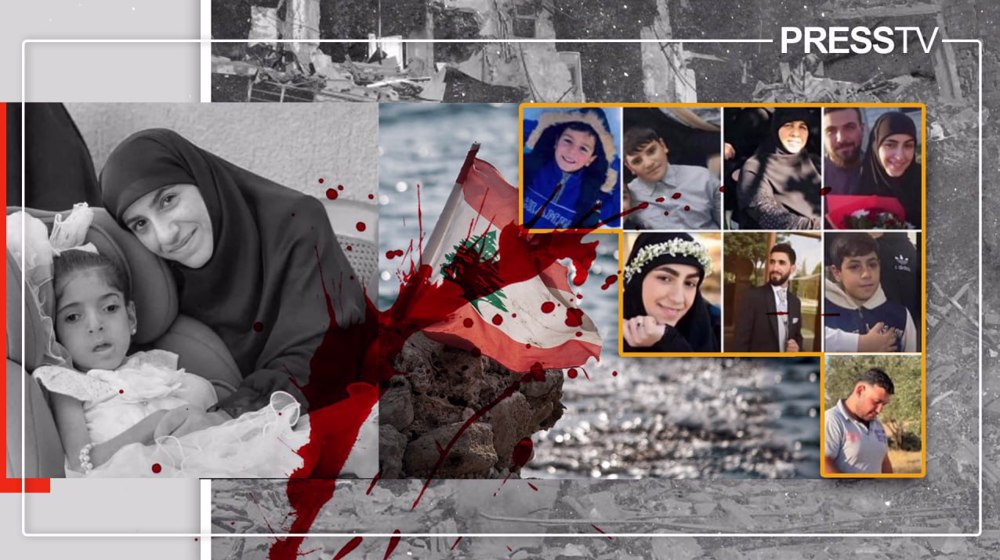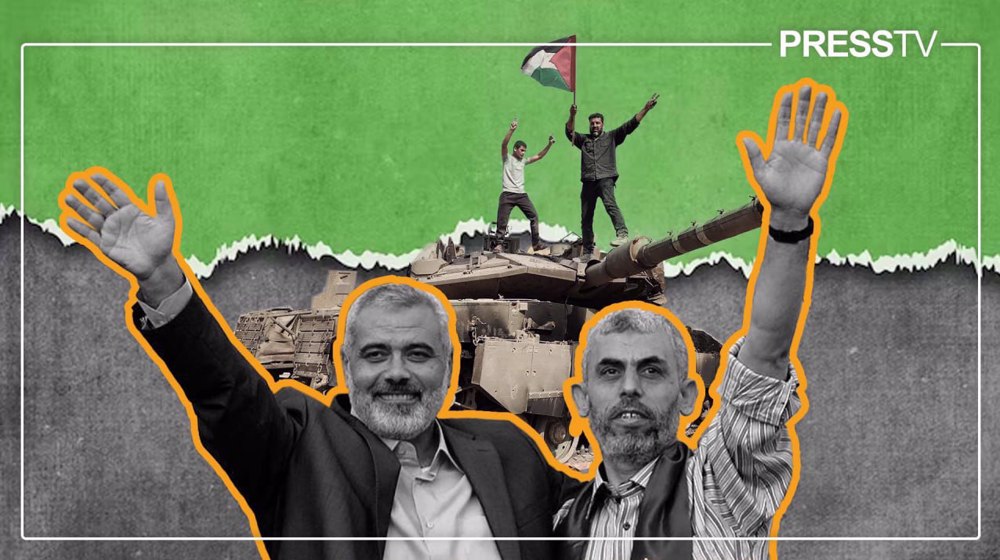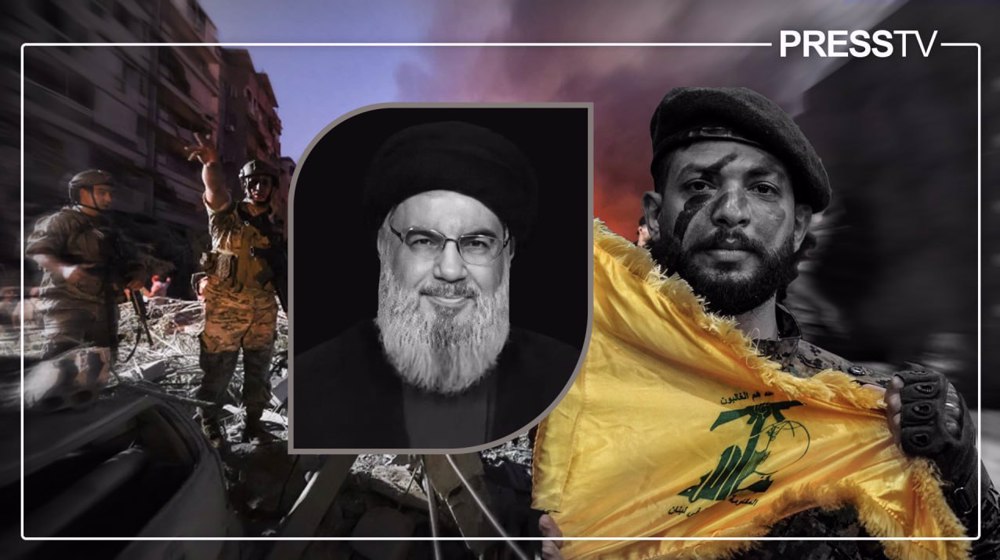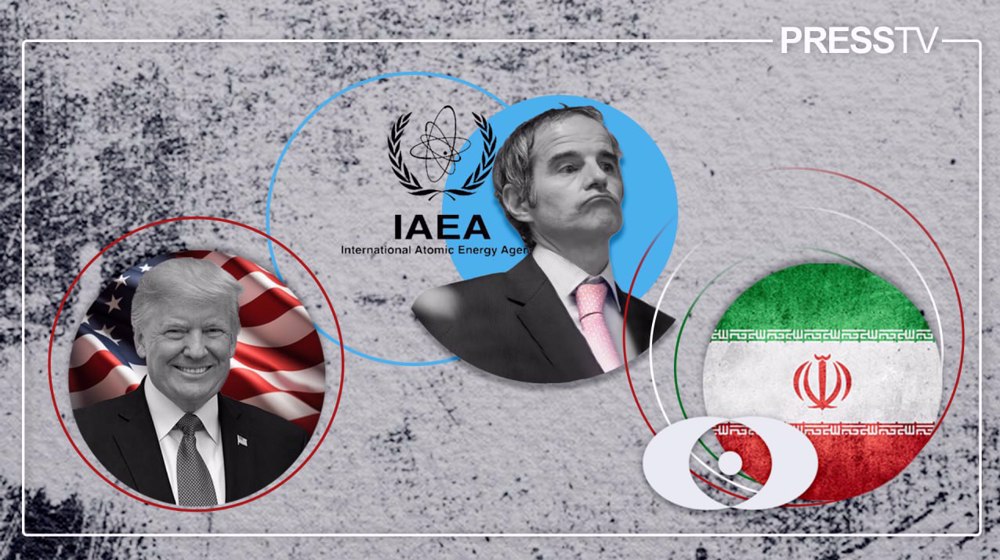I write for Iman and Ghazal, martyrs with name and face, not cold numbers
By: Lama Almakhour
I write today to reveal the painful truth the world has buried, etching its shame in the annals of history, so that we may be reduced to cold statistics with no names and no faces.
The number of martyrs in the besieged Gaza Strip since the beginning of this most recent genocide—it’s not the first—is over 43,700, with 70 percent of them children and women.
In Lebanon, as of this moment, sources speak of 3,365 martyrs and more than 12,000 wounded.
How many faces does this world know about? Or have our faces and names been reduced to ashes of war, tossed into the cruel calculations of a world that revels in a 75-year-long bloody play?
I know two of these faces, two of these names...
I have kept them alive in my memory, free from blood, wounds, or shrapnel. I remember them as they were before the genocidal Zionist war machinery, powered by American and Arab support, brutally cut short their beautiful lives.
Today, I write for Iman and Ghazal, my uncle Hussein’s wife and daughter. Two of the most beautiful souls I knew – always exuberant, always full of life.
Ghazal and I shared the same blood, the same family and the same ancestral soil. Iman, though not bound by blood, shared a common cause and gave her final gift—her blood—to the same land.
On the fateful afternoon of November 1, an Israeli missile, American-made and Arab-enabled, martyred Iman and her five-year-old daughter Ghazal, who was confined to her wheelchair.
They were martyred alongside many other members of their extended family in their home in northern Bekaa.
The news was relayed to the world—the viewer—partner in this crime—in these words:
"An Israeli raid causes a massacre of the Amhaz family in the town of Labweh in northern Bekaa, which led to the martyrdom of all members of the family."
Period.
This is how, with chilling simplicity, the world receives and absorbs the news about the broad daylight murder of thousands of us by the Zionist regime. The news of our death is broadcast on screens and dismissed even before the dust settles on our broken, lifeless bodies.
✍️ Investigation – Meet foreign mercenaries hired by Israel to slaughter people in Gaza and Lebanon
— Press TV 🔻 (@PressTV) November 9, 2024
By Alireza Akbarihttps://t.co/gHrZ9AcxGj
This is not our first war. Egyptian poet Amal Dunqul reminds us, "It is not your revenge alone, but it is the revenge of one generation after another…”
What the Israeli killing machine cannot comprehend is that with each slaughter and each massacre, it plants new seeds of resistance in the hearts of every person of honor, in Lebanon and elsewhere.
This is not just Palestine’s revenge, nor Lebanon’s or Iran’s, nor any country that will not bow to oppression. This is the revenge of every soul, of all those who belong to the Karbala school of thought, where death is better than humiliation, where blood also prevails over the sword.
I repeat her name: Iman...
She had a beautiful home, a family, and dreams. She loved life, just as she never feared death, her spirit free and unbending. She was a perfect embodiment of what women of resistance are.
When Iman was pregnant, the doctor told them that the fetus had serious health complications and suggested an abortion to spare future suffering for young parents.
But Iman and her husband did not take the suggestion. They embraced their child and named her Ghazal the moment they knew her gender. The newborn brought new light and hope into their lives.
When her daughter was born, Iman took care of the simplest details of their first meeting, as if the mother knew the road ahead for the two of them was short and harsh.
She hung Ghazal's name on the door of their home, planted lavender to grow in every direction, and hung all the colorful dresses she dreamed of seeing Ghazal wear as she ran through the garden.
Her only prayer was for Ghazal to arrive. Ghazal came as an angel with almond eyes and hair as black as night. She became the apple of everyone’s eye. When her father would return home from work, she would rush towards him in her wheelchair with a sparkle in her eyes.
Iman visited the shrine of Imam Hussein (AS) in the holy city of Karbala with Ghazal, not asking for anything but acceptance. Iman’s soul was too sacred to ask for anything temporal. She would go to find affection with them, to thank them for the beautiful gift that Ghazal was.
A day before Iman’s martyrdom, I called her. She had visited Imam Reza’s (AS) shrine in the holy city of Mashhad, and her eyes were alight with hope and happiness.
Certainly, she loved Imam Reza (AS), and he loved her too. They would soon meet again, and this time Ghazal would walk to the Imam on her own, without the support of her wheelchair.
Iman dreamed, despite the clouds of war and mayhem around her. She saw large fields of lavender, envisioned a second child to accompany Ghazal, and imagined founding an organization for mothers clinging to hope, mothers like herself. Her last dream was a victory—or perhaps…martyrdom.
Life threw many hurdles at Iman, yet she met each challenge and overcame each obstacle with resilience. In the last year of her precious life, she even decided to attend university to help Ghazal. She said she would endure any price if it meant Ghazal might one day lift her hand or foot by herself or her physical condition would improve even a bit.
Iman could not go through with her decision because after a short period, Ghazal's health deteriorated and she was admitted to intensive care.
Weeks before her martyrdom, she confided in me her frustration with those who had failed the resistance in its hour of need. She said that the loss of Sayyed Hassan Nasrallah left a heavy responsibility on the shoulders of our people.
She never stopped believing for a moment that this land only embodies victory and she was always certain that people with the righteous cause always win.
Iman’s faith—her very name in Arabic—defined her. She lived, mothered, and died by it.
Iman believed no dispute could ever divide siblings, no matter the reasons. She cared deeply for her neighbors, the orphans, and the poor. She blossomed wherever life planted her, and I am certain even her grave blossomed before she reached it.
She loved Lebanon’s Assi River, where she very frequently sent letters to God in her own handwriting, each answered, until His hand took hers forever.
In her home hung a picture of the martyred Sayyed, among countless photos of Ghazal. Now, those images hold on to each other and fly like flocks of birds to the heavens.
The names, laughter, and whispers resonate more deeply than ever.
Their memories remain to console Hussein, my uncle, who lost two more important people in his life.
But do our sacrifices matter to this hardened world that has normalized our daily massacres, from Gaza to Lebanon? Why must we explain and translate our lives to a world blind to the Israeli regime’s obliteration of our dreams, our homes, our memories?
Isn’t our blood inscribed on the walls of truth? Isn’t this the history of Arabs, tainted by a neutrality that is nothing but shame?
"Hezbollah resistance movement is still strong"
— Press TV 🔻 (@PressTV) November 7, 2024
Leader of the Islamic Revolution Ayatollah Khamenei hails Lebanon's Hezbollah movement for its continued resistance against Israel. pic.twitter.com/6xk65IAWdH
I write from the soil of the Islamic Republic of Iran, forced to leave Lebanon—my land, my family, my memories, my friends, and my dreams. In my hand is my pen.
I do not write for hands stained with the blood of my kin.
I write because tomorrow is coming, and history will demand an account of this silence, the silence that amounts to cowardice and complicity. I write because this is my voice against falsehood.
I write for the martyrs, with their faces and names—not cold numbers.
I write for every inch of my land that has never, and will never, yield to oppression, holding onto its faith like embers in hand ((referring to the tradition in Islam that at the end of time, the believer would be holding on to his religion as though he is holding hot coal).
Lama Almakhour is from Lebanon who lost many members of her family in the ongoing Israeli aggression on her country, including her 5-year-old cousin and her mother.
The article, exclusive to the Press TV website, was originally written in Arabic and translated into English by Roya Pour Bagher.
What collapse of German coalition government means
Iran, Syria emphasize need to stop Israeli atrocities in Gaza, Lebanon
Clinton whisked away amid pro-Palestine protest at Belfast university
I write for Iman and Ghazal, martyrs with name and face, not cold numbers
VIDEO | Islamic Revolution Leader’s memoirs book in Italian unveiled in Rome
VIDEO | Syria-Iran alliance strengthens as Larijani arrives in Damascus for key talks
Israeli fans clash with French supporters at Paris football match
Ben & Jerry’s sues parent company Unilever over Gaza advocacy muzzle










 This makes it easy to access the Press TV website
This makes it easy to access the Press TV website